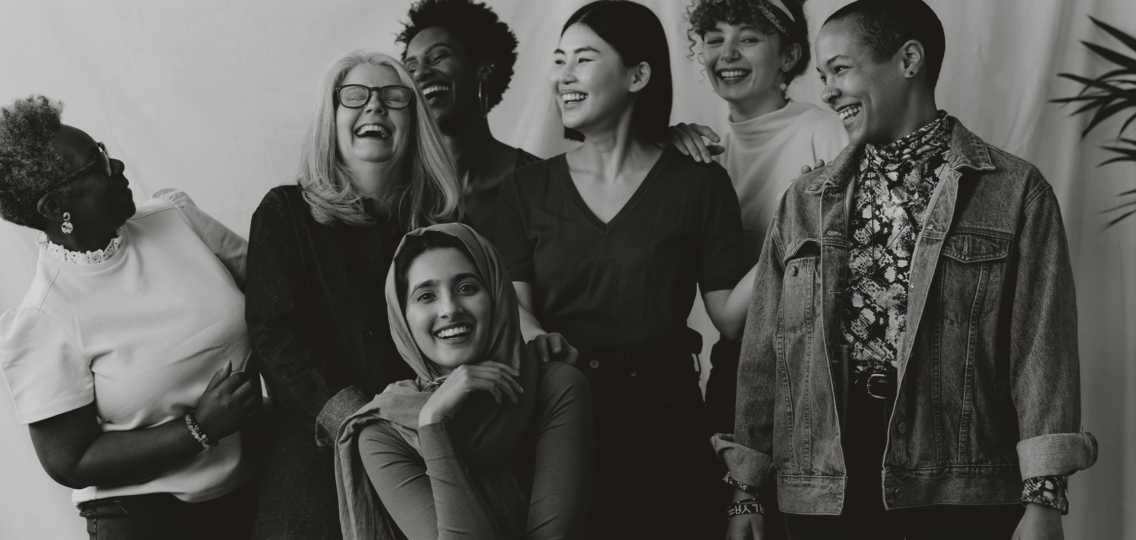Sometimes I look up and see how far we’ve got left to climb and lose energy. And then I look down, realise how far we’ve come, and it spurs me on.
How many steps are left?
How many more rungs do we have to climb up the career ladder to break through that glass ceiling?
A lot less than women 10, 15, 20 years ago. But still, more than we should be facing.
International Women’s Day (IWD) gives us an opportunity to talk about where women are heading, what we can do to support equality, and break the bias.
But IWD is just one day. To truly change, businesses have to stop being performative and work hard at creating a gender diverse workforce all year round. In other words don’t just talk the talk, make sure you also walk the walk.
Yes, it takes time and resources – but what businesses gain from treating women equally is far greater.
Let’s explore.
An innovative workforce
From gender diversity to culture, age, and race — all have been shown to encourage creativity and innovation in the workplace.
Men and women will inevitably have different experiences and backgrounds, which shape their approach to business. They will offer different insights that can make products and services more marketable and a business more profitable. Research from McKinsey shows that gender-diverse businesses are 15% more likely to outperform financially above the industry median.
Challenging and collaborating with people who think differently can breed creativity and promote innovative ideas that push your business forward.
Better customer insight
According to research and consulting firm Frost & Sullivan, global female income was expected to reach $24 trillion in 2020. And by 2030, there’ll be 100 million more women in the global labour force. This means that women are in a position to be hugely influential when it comes to consumer spending.
The more the makeup of your organisation reflects that of your end customer, the more likely you are to understand and communicate effectively with them.
Managers with emotional intelligence
According to an article in Fortune magazine, CEOs consistently state that soft skills are highly desirable professional attributes. And whilst I don’t like the undermining term ‘soft skill’, the message is clear; characteristics such as empathy, self-awareness and effective communication are highly valued and can impact the bottom line.
Korn Ferry is a people and organisational advisory firm, and they state that women outperform men in 11 of 12 key emotional intelligence competencies.
These included emotional self-awareness, empathy, conflict management, adaptability and teamwork — all essential skills for effective leadership in the workplace.
Employee retention and attracting talent
According to Gallup, Gen Z and millennials want leaders who support a diverse and inclusive workplace. They say, “younger generations grew up in a world that was far more diverse than previous generations. They demand respect, equity and inclusion and they are voting with their consumer and employment choices.”
Having an inclusive workplace is a powerful recruitment and retention tool. Having a reputation as an inclusive employer is essential for businesses to demonstrate positive company values. It can have a positive impact on an organisation’s status in competitive recruitment marketplaces.
A thriving culture and increase in wellbeing
The pandemic put extraordinary pressure on companies and their people. A vast number of businesses say managers are promoting employee wellbeing and that DEI (diversity, equity and inclusion) is a key priority. According to a McKinsey’s Women in the Workplace 2021 study, employees with women managers are more likely to say that their manager has supported and helped them over the past year.
The study shows that women leaders are meeting this moment and tackling it head on. They’re helping their teams juggle the work/life balance, managing workloads and checking in on their teams’ wellbeing. Women are also spending more time on DEI work and showing up as active allies to women of colour, educating themselves in the process.
The message here is clear. When managers support wellbeing and companies prioritise DEI, the workplace becomes a happier place – one that increases wellbeing and in turn helps foster a culture where we thrive. If women are driving these two areas, then they need to be given the support, recognition and resource to continue this critical work.
To everyone: we all benefit from supporting women and creating an equal and diverse workplace.
To women: I’ll see you on that ladder.
To continue the conversation and follow our thought leadership, join us on LinkedIn.



